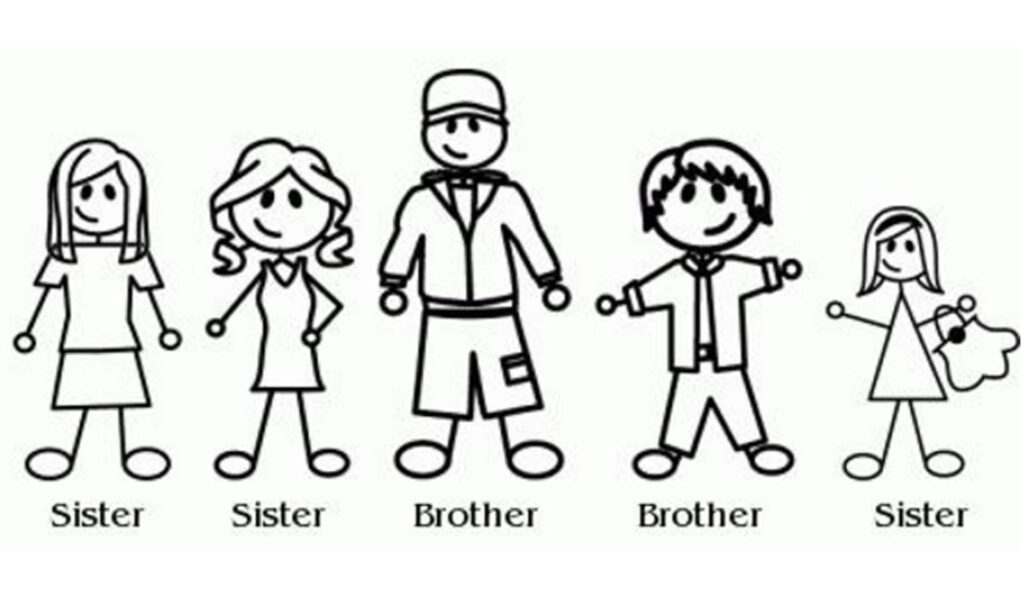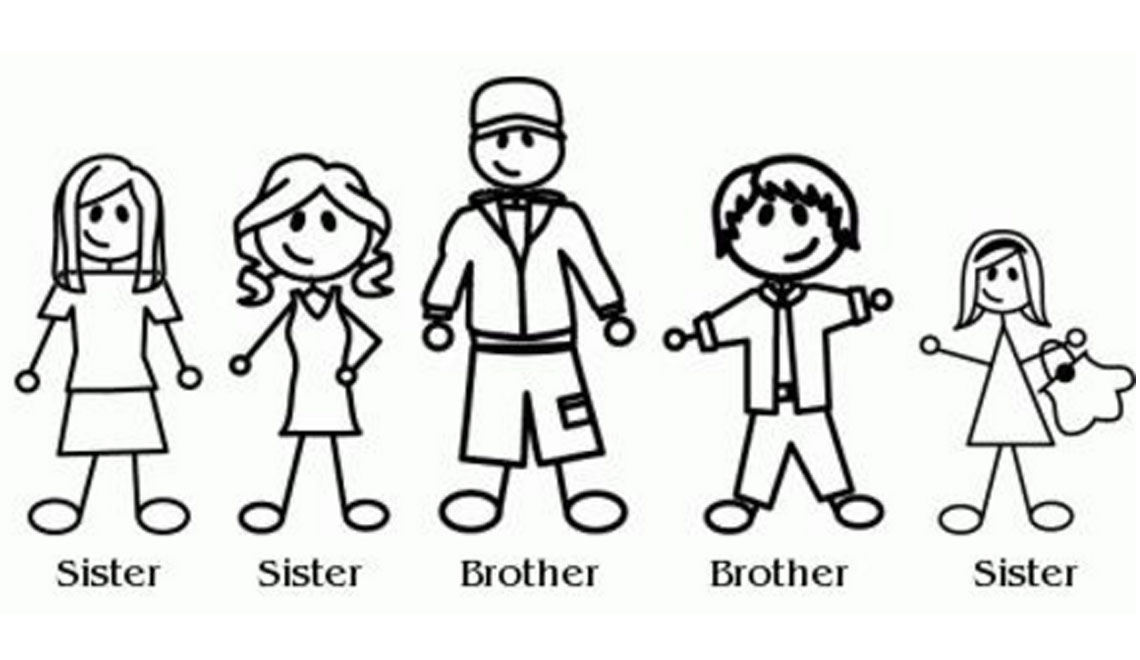
Decoding Birth Order: What Does Your Position in the Family Really Mean?
The concept of birth order and its potential influence on personality has fascinated psychologists and the general public alike for over a century. Does being the eldest, middle, youngest, or only child truly shape who we become? While not a deterministic factor, birth order can offer valuable insights into the dynamics of family relationships and how individuals develop certain traits and tendencies. This article delves into the various theories and research surrounding birth order, exploring the potential impact of familial roles on personality, achievement, and relationships.
The History of Birth Order Theory
The earliest formal exploration of birth order can be traced back to Alfred Adler, an Austrian psychiatrist and a contemporary of Sigmund Freud. Adler, initially part of the psychoanalytic movement, diverged to develop his own school of thought, known as individual psychology. He posited that birth order creates unique psychological situations within the family, leading to distinct personality traits. Adler believed that the eldest child, dethroned by younger siblings, often strives for achievement and authority. The middle child, feeling squeezed between siblings, might develop a strong sense of fairness and diplomacy. The youngest child, often pampered and indulged, may be more creative and attention-seeking. Adler’s ideas, though influential, were largely based on observation and clinical experience rather than rigorous empirical research.
Adler’s Core Principles of Birth Order
Adler’s theory rests on several key principles:
- The Firstborn: Often characterized as responsible, conscientious, and high-achieving. They may be more likely to conform to rules and expectations.
- The Middle Child: Known for being adaptable, diplomatic, and good negotiators. They often seek attention and strive for fairness.
- The Youngest Child: Often seen as charming, outgoing, and attention-seeking. They may be more creative and less responsible.
- The Only Child: May exhibit traits similar to firstborns, such as responsibility and high achievement, but can also be more self-centered and demanding.
Modern Perspectives on Birth Order
While Adler’s ideas provided a foundation, modern research on birth order takes a more nuanced approach. Contemporary psychologists acknowledge that birth order is just one factor among many that influence personality development. Genetics, temperament, parenting styles, socioeconomic status, and cultural context all play significant roles. Studies have shown that the effects of birth order, while potentially present, are often smaller than initially believed and can be difficult to isolate from other variables.
Challenges in Birth Order Research
Studying the effects of birth order presents several methodological challenges. It’s difficult to control for all the confounding variables that can influence personality development. For example, families with different numbers of children, varying age gaps between siblings, and diverse parenting styles can all skew results. Furthermore, self-reported personality traits may be subject to bias, as individuals may unconsciously conform to stereotypes associated with their birth order.
The Impact on Personality Traits
Despite the challenges, some research suggests potential links between birth order and certain personality traits:
Firstborns: Leaders and Achievers
Firstborn children often take on leadership roles and tend to be more conscientious and achievement-oriented. They may also exhibit higher levels of anxiety and perfectionism, potentially stemming from the pressure to set a good example for their younger siblings. They are often given more responsibility at a younger age, contributing to their sense of maturity and leadership skills. This early responsibility can also lead to a stronger sense of duty and a tendency to be rule-followers. [See also: Leadership Styles and Personality]
Middle Children: Negotiators and Peacemakers
Middle children often develop strong interpersonal skills and excel at negotiation and conflict resolution. They tend to be more independent and adaptable, having learned to navigate complex family dynamics. They may also feel a need to differentiate themselves from their siblings, leading them to pursue unique interests and talents. The constant need to negotiate and compromise within the family can make them excellent mediators in other social situations. They often value fairness and strive to maintain harmony in their relationships.
Youngest Children: Creative and Outgoing
Youngest children are often perceived as more carefree, creative, and outgoing. They may receive more attention and indulgence from their parents and older siblings, fostering a sense of security and confidence. However, they may also struggle with independence and responsibility, as they are often accustomed to being cared for. They often develop a strong sense of humor as a way to gain attention and approval. They may also be more rebellious, seeking to establish their own identity in the shadow of their older siblings.
Only Children: Independent and Mature
Only children often exhibit traits of both firstborns and youngest children. They tend to be highly independent, responsible, and achievement-oriented. They may also be more self-centered and demanding, having not had to compete for attention with siblings. They often develop strong relationships with adults and may be more mature for their age. The lack of sibling rivalry can contribute to a more peaceful and focused upbringing, allowing them to pursue their interests and talents without distraction.
Birth Order and Academic Achievement
Some studies have explored the relationship between birth order and academic achievement. While findings are mixed, some research suggests that firstborns tend to perform slightly better academically than later-born children. This may be due to factors such as greater parental attention, higher expectations, and more opportunities for early learning. However, these differences are often small and may be influenced by socioeconomic status and other factors. [See also: The Impact of Parental Involvement on Academic Success]
Birth Order and Relationships
Birth order can also influence relationship dynamics. Firstborns may be more likely to seek partners who are dependable and responsible, while later-borns may be drawn to partners who are more adventurous and spontaneous. Understanding the potential impact of birth order can help individuals navigate their relationships with greater awareness and empathy. For example, knowing that a firstborn partner may value structure and planning can help avoid conflicts and misunderstandings. Similarly, understanding that a later-born partner may crave spontaneity and excitement can help create a more fulfilling relationship.
Criticisms of Birth Order Theory
Despite its enduring appeal, birth order theory has faced significant criticism. Many researchers argue that the effects of birth order are often overstated and that other factors, such as genetics and environment, play a more significant role in shaping personality. Critics also point to the lack of consistent empirical evidence supporting the theory. Some studies have found little or no correlation between birth order and personality traits, while others have yielded conflicting results. The complexity of family dynamics and the difficulty of controlling for confounding variables make it challenging to draw definitive conclusions about the impact of birth order.
The Importance of Context and Individual Differences
It’s crucial to remember that birth order is not a fixed determinant of personality. Individual differences, family dynamics, and cultural context all play a significant role. A child’s experiences within the family, their relationships with their parents and siblings, and the values and expectations of their culture can all shape their personality in unique ways. It is also important to note that the impact of birth order can vary depending on the size of the family, the age gaps between siblings, and the gender composition of the family. For example, a firstborn son in a family with only daughters may experience different pressures and expectations than a firstborn daughter in a family with only sons.
Conclusion: Birth Order as a Piece of the Puzzle
While birth order may not be the definitive factor in shaping personality, it can provide valuable insights into the complex dynamics of family relationships. Understanding the potential impact of birth order can help individuals gain a deeper understanding of themselves and others. It is essential to consider birth order as just one piece of the puzzle, alongside genetics, environment, and individual experiences. By taking a holistic approach, we can gain a more comprehensive understanding of the factors that contribute to personality development. The influence of birth order should be viewed as a subtle influence, rather than a rigid determinant, allowing for a more nuanced and accurate understanding of human behavior.

